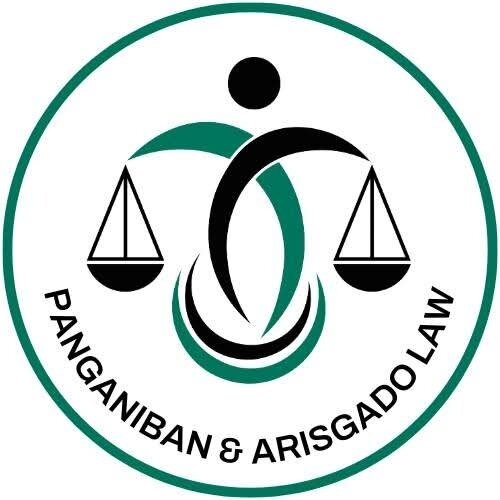Best Guardianship Lawyers in Philippines
Share your needs with us, get contacted by law firms.
Free. Takes 2 min.
Or refine your search by selecting a city:
List of the best lawyers in Philippines

Dagsaan Monterde Castillo Law and Notary Public (DMC LAW)
15 minutes Free ConsultationPhilippines Guardianship Legal Questions answered by Lawyers
Browse our 1 legal question about Guardianship in Philippines and read the lawyer answers, or ask your own questions for free.
- Illegal detention of our mother
- Mom is staying in her home, owned by the corporation. Sister is staying with her, padlocking the house and not allowing us to communicate or see her. She shows videos only. When communicating with caregivers, she turns off the communication
-
Lawyer answer by Recososa Law Firm
We received your message inquiry from Lawzana regarding your concern about being denied access and communication with your mother, who is currently residing in a house owned by your family corporation. We understand how emotionally distressing this situation is, especially...
Read full answer
About Guardianship Law in Philippines
Guardianship in the Philippines is regulated by Republic Act No. 10172, among other pertinent laws. It is a legal mechanism to protect individuals who cannot care for themselves, such as minors or those with disabilities. A guardian is appointed by the court to make decisions on behalf of these individuals to ensure their well-being and proper management of their properties. The courts ensure that the appointed guardians act in the best interest of the wards (persons under guardianship) and uphold their rights and welfare.
Why You May Need a Lawyer
Seeking legal advice in matters of Guardianship can be crucial for many reasons:
- Complexity of Laws: Philippine Guardianship laws can be intricate, involving statutes, case law, and procedures that are challenging to navigate alone.
- Disputes: Family conflicts may arise over who should be appointed as a guardian, necessitating legal intervention.
- Protection of Rights: Ensuring the rights and best interests of the ward are adequately protected requires skilled legal representation.
- Compliance: Guardians have legal duties and responsibilities, including the management and reporting of the ward's affairs, which must comply with strict legal standards.
- Special Cases: Situations involving property management or large estates might require nuanced legal strategies.
Local Laws Overview
The key aspects of Guardianship laws in the Philippines include:
- Eligibility for Guardianship: Primarily applies to minors and incapacitated persons. The court considers the best interests of these individuals in appointing guardians.
- Guardianship of Minors: Governed by the Family Code, which states that parents are the natural guardians but allows for the appointment of a legal guardian if necessary.
- Guardianship of Incapacitated Persons: Courts may appoint guardians for individuals who are incapable of managing their own affairs due to mental or physical incapacities.
- Court Appointments: Detailed court proceedings are required for appointing guardians including petitions, hearings, and documentation reviews.
- Duties of Guardians: Guardians are responsible for the care, custody, and management of the ward's property and must file regular reports to the court.
- Termination of Guardianship: Automatically ends when the ward reaches the age of majority, regains capacity, or in the event of the ward’s death.
Frequently Asked Questions
What is the process for appointing a guardian in the Philippines?
The process begins with filing a petition in Family Court. The court will review the documentation, conduct hearings, and decide based on the best interests of the proposed ward.
Who can be a guardian?
Generally, any competent person who can manage the ward's affairs can be appointed as a guardian. The court might prioritize family members unless proven otherwise.
What are the responsibilities of a guardian?
A guardian is responsible for ensuring the well-being of the ward, managing their property, and making decisions that affect the ward’s life and finances.
Can a guardian be removed?
Yes, if a guardian fails in their duties or acts against the ward’s best interests, parties can petition the court for removal and appointment of a new guardian.
Does guardianship affect inheritance rights?
Guardianship itself does not affect inheritance rights. Guardians are required to manage the ward's property laws consistent with existing inheritance laws.
How long does the guardianship process take?
The time frame can vary based on court caseload and complexity of the guardianship petition. It may take several months to a year.
Is legal representation required during the guardianship process?
While not mandatory, legal representation is strongly recommended for navigating complex legal requirements and protecting all parties’ interests.
What are the costs involved in establishing guardianship?
Costs can include legal fees, court fees, and any fees associated with fulfilling fiduciary duties. These can vary based on the case complexity.
Can guardianship arrangements be temporary?
Yes, a court can establish temporary guardianship arrangements in urgent circumstances pending a full guardianship hearing.
What happens if no guardian is available?
If no suitable guardian is found, the court may appoint a public guardian to ensure the protection and support of the ward.
Additional Resources
For further information and resources, you may consider the following:
- Philippine Department of Social Welfare and Development (DSWD): Offers guidance and protective services for individuals requiring guardianship.
- Philippine Judicial System: Resources available on their official website for legal information and guidance regarding guardianship cases.
- Legal Aid Programs: Organizations like the Integrated Bar of the Philippines provide legal aid services for those unable to afford a lawyer.
Next Steps
If you believe you need legal assistance with guardianship, here is a suggested course of action:
- Assess Your Situation: Understand the need for guardianship and gather all relevant details related to the ward's condition and circumstances.
- Consult a Lawyer: Reach out to a lawyer specializing in family law to discuss your situation and explore your legal options.
- Prepare for Court: With your lawyer's help, prepare the necessary documentation and evidence for filing a petition or attending hearings.
- Engage with Support Services: Get involved with support services or organizations that may offer additional assistance and resources.
Remember, navigating guardianship laws can be complex, so professional legal help is invaluable to achieving the best outcome.
Lawzana helps you find the best lawyers and law firms in Philippines through a curated and pre-screened list of qualified legal professionals. Our platform offers rankings and detailed profiles of attorneys and law firms, allowing you to compare based on practice areas, including Guardianship, experience, and client feedback.
Each profile includes a description of the firm's areas of practice, client reviews, team members and partners, year of establishment, spoken languages, office locations, contact information, social media presence, and any published articles or resources. Most firms on our platform speak English and are experienced in both local and international legal matters.
Get a quote from top-rated law firms in Philippines — quickly, securely, and without unnecessary hassle.
Disclaimer:
The information provided on this page is for general informational purposes only and does not constitute legal advice. While we strive to ensure the accuracy and relevance of the content, legal information may change over time, and interpretations of the law can vary. You should always consult with a qualified legal professional for advice specific to your situation.
We disclaim all liability for actions taken or not taken based on the content of this page. If you believe any information is incorrect or outdated, please contact us, and we will review and update it where appropriate.
Browse guardianship law firms by city in Philippines
Refine your search by selecting a city.
















